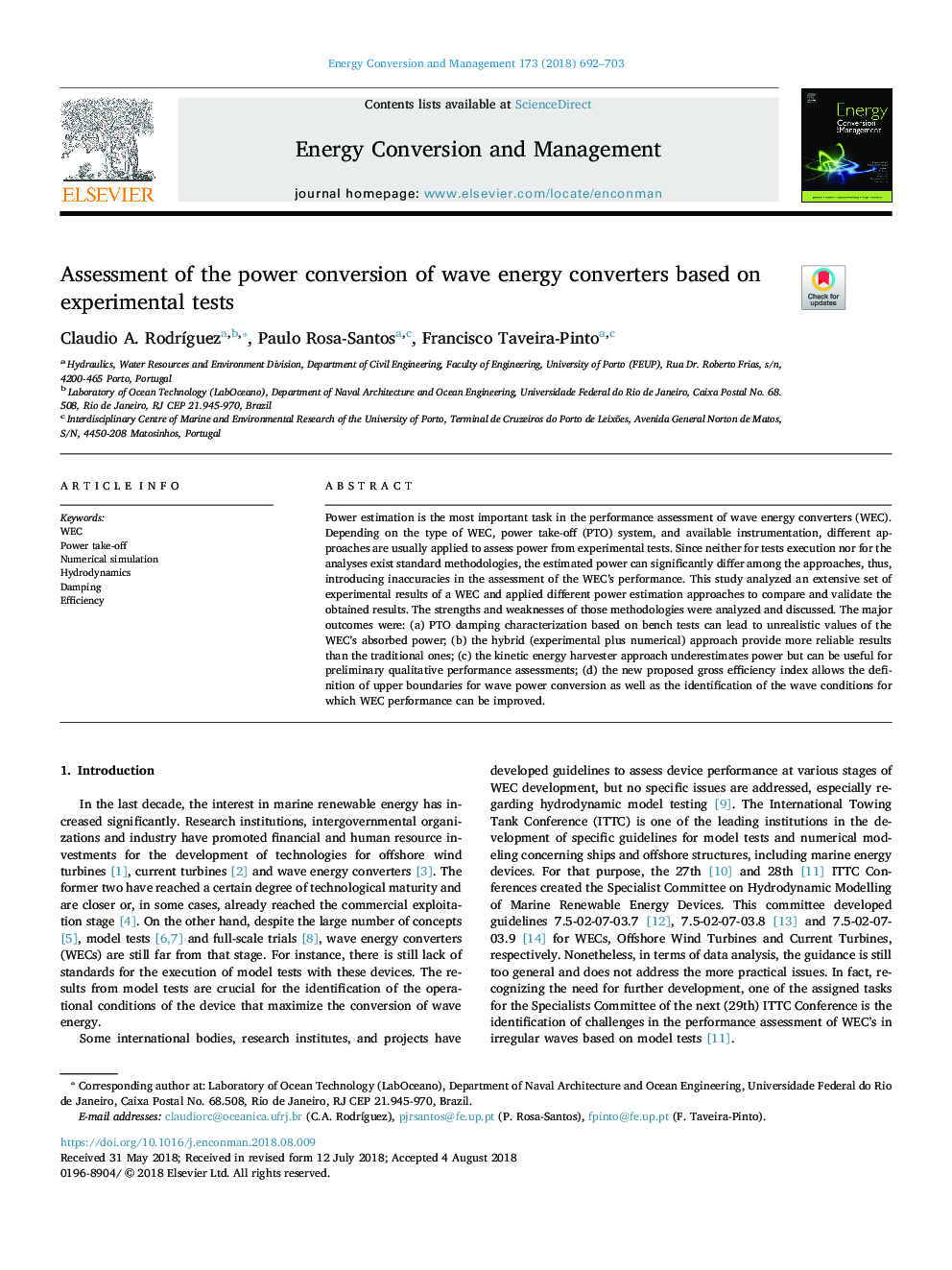| Article ID | Journal | Published Year | Pages | File Type |
|---|---|---|---|---|
| 7157826 | Energy Conversion and Management | 2018 | 12 Pages |
Abstract
Power estimation is the most important task in the performance assessment of wave energy converters (WEC). Depending on the type of WEC, power take-off (PTO) system, and available instrumentation, different approaches are usually applied to assess power from experimental tests. Since neither for tests execution nor for the analyses exist standard methodologies, the estimated power can significantly differ among the approaches, thus, introducing inaccuracies in the assessment of the WEC's performance. This study analyzed an extensive set of experimental results of a WEC and applied different power estimation approaches to compare and validate the obtained results. The strengths and weaknesses of those methodologies were analyzed and discussed. The major outcomes were: (a) PTO damping characterization based on bench tests can lead to unrealistic values of the WEC's absorbed power; (b) the hybrid (experimental plus numerical) approach provide more reliable results than the traditional ones; (c) the kinetic energy harvester approach underestimates power but can be useful for preliminary qualitative performance assessments; (d) the new proposed gross efficiency index allows the definition of upper boundaries for wave power conversion as well as the identification of the wave conditions for which WEC performance can be improved.
Related Topics
Physical Sciences and Engineering
Energy
Energy (General)
Authors
Claudio A. RodrÃguez, Paulo Rosa-Santos, Francisco Taveira-Pinto,
